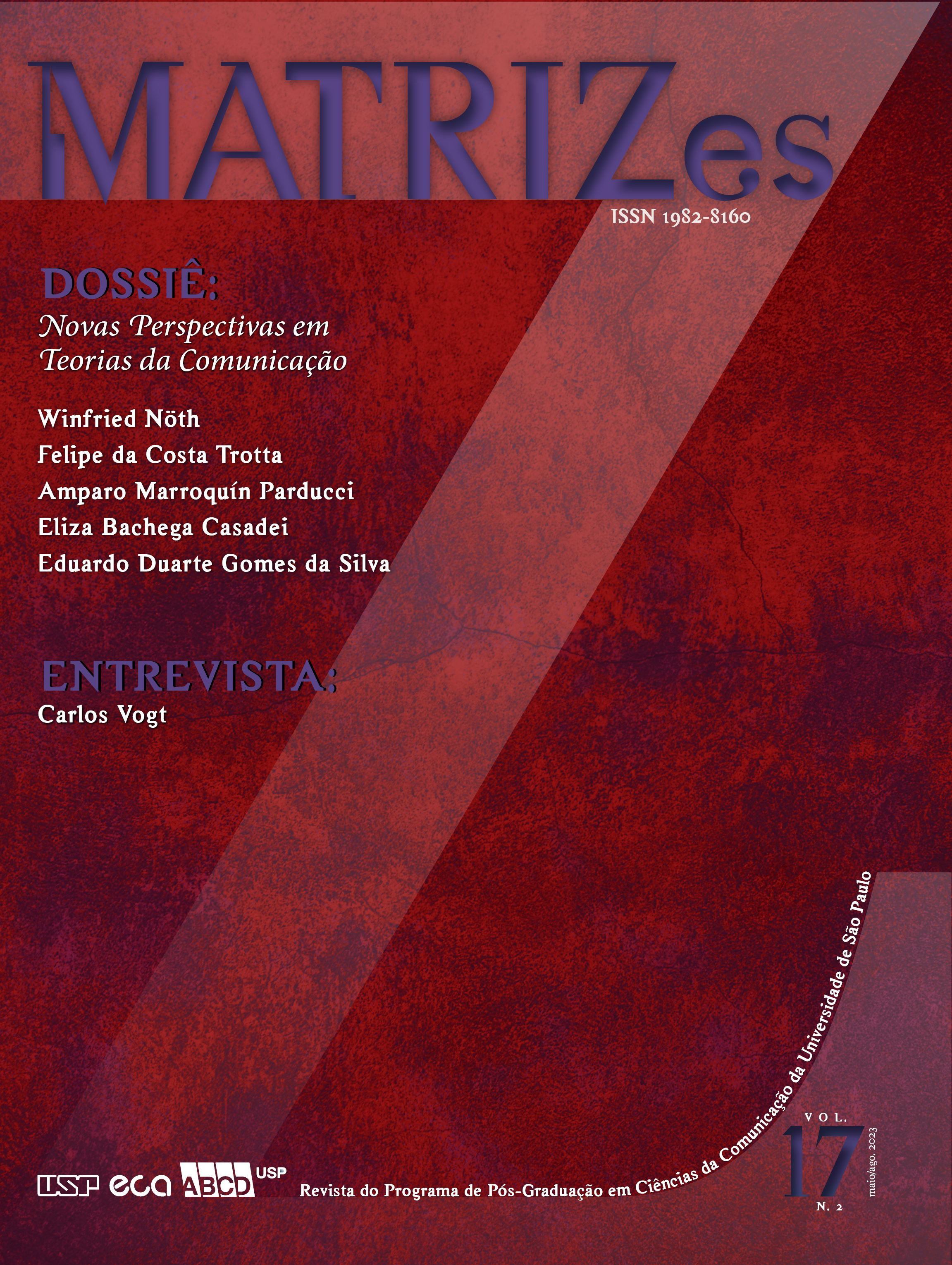Musical taste, moral and annoyances
DOI:
https://doi.org/10.11606/issn.1982-8160.v17i2p25-48Keywords:
Music, Musical taste, Moral, AnnoyanceAbstract
Music is a form of action and thought in the world. Participating in a musical experience is interacting with ideas, values, and belongings that sometimes are far away from our preferences, but are sometimes closer. Musical taste is an important axis of debates about everyday music experiences. Based on research on musical discomforts, I propose a reflection on taste based on rejecting tastes, rather than on sharing them. A survey was done with about 70 persons from different social classes, ages, and places who were asked to talk about situations in which music had bothered them. When someone defines a piece of music as annoying, the issue revolves around complex elaborations about morals, deepening interpretations about ethical and behavioral codes that depart from sound judgment and expand into broader judgments about individuals and values recognized in the then called annoying music.
Downloads
References
Alabarces, P., & Silba, M. (2016). Cumbia Nena: Cumbia Scene, Gender and Class in Argentina. In J. Mendívil & C. Spencer (orgs.), Made in Latin America: Studies in popular Music (pp. 79–88). Routledge.
Alonso, G. (2015). Cowboys do Asfalto. Companhia das Letras.
Amaral, A. (2014). Manifestações da performatização do gosto nos sites de redes sociais: uma abordagem a partir da cultura pop. Revista ECO-PÓS, 17, 1–12.
Araújo, P. C. (2002). Eu não sou cachorro não: música popular cafona e ditadura militar. Record.
Blacking, J. (1995). Music, Culture and Experience. Chicago University Press.
Bourdieu, P. (2007). A distinção: crítica social do julgamento. Zouk.
Brennan, M. (2017). When Genres Collide: Down Beat, Rolling Stone, and the Struggle Between Jazz and Rock. Bloomsbury.
DeMarchi, L. (2016). A destruição criadora da indústria fonográfica brasileira (1999-2009). Folio Digital.
DeNora, T. (2000). Music in Everyday Life. Cambridge University Press.
Freire Filho, J., & Herschmann, M. (2003). Funk carioca: entre a condenação e a aclamação pela mídia. Revista ECO-PÓS, 6(2). 60–72.
Frith, S. (1996). Performing Rites: on the value of popular music. Harvard University Press.
Hennion, A. (2001). Music lovers: taste as performance. Theory, Culture, Society, 18(5), 1-22.
Herschmann, M. (2005). O funk e o hip hop invadem a cena. EdUFRJ.
Holt, F. (2007). Genres in Popular Music. Chicago University Press.
Janotti Jr., J. (2020). Gêneros musicais em ambientações digitais. PPGCOM, UFMG.
Janotti Jr., J., & Pereira de Sá, S. (2018). Revisitando a noção de gênero musical em tempos de cultural digital. Galaxia, 41, 128–139.
Lahire, B. (2007). Indivíduo e Mistura de Gêneros: Dissonâncias Culturais e distinção de si. DADOS: Revista de Ciências Sociais, 50(4), 795–825.
Lemos, A. (2007). Cidade e mobilidade: telefones celulares, funções pós-massivas e territórios informacionais. Matrizes, 1(1), 121–137.
Mendívil, J. (2016). En contra na música: herramientas para pensar, compreender y vivir las músicas. Gourmet Musical.
Negus, K. (1999). Music Genres and Corporate Cultures. Routledge.
Oakes, J. L. (2004). Pop Music, Racial Imagination, and the Sounds of Cheese: Notes on Loser’s Lounge. In C. Washburne & M. Derko (eds.), Bad Music: the music we love to hate (pp. 47–64). Routledge.
Oliveira, L. (2017). A cena musical da Black Rio. EdUFBA.
Palombini, C. (2009). Soul brasileiro e funk carioca. Opus, 15(1), 32–60.
Palombini, C., & Facina, A. (2017). O patrão e a padroeira: momentos de perigo na Penha, Rio de Janeiro. Mana, 23(2), 341–370.
Pereira de Sá, S. (2009). Se vc gosta de Madonna também vai gostar de Britney! Ou não?: gêneros, gostos e disputa simbólica nos sistemas de recomendação musical. E-Compós, 12(2), 1–20.
Pereira de Sá, S. (2021). Música pop-periférica brasileira. Appris.
Pereira de Sá, S., & Cunha, S. E. (2017). Haters Beyond the Hate: Stigma and Prejudice against Funk carioca on Youtube. Journal of World Popular Music, 4(2), 152–170.
Rabelo Luccas, R. (2022). Para acompanhar seu dia: controvérsias e negociações entre o consumo musical de playlists situacionais e o gosto musical. [Tese de Doutorado em Comunicação, Universidade Federal Fluminense].
Regev, M. (2013). Pop-Rock Music. Polity Press.
Vila, P., & Semán, P. (2011). Cumbia: raza, nación, etnia y género en Latinoamérica. Gorla.
Soares, T. (2015). Percursos para estudos sobre música pop. In S. Pereira de Sá, R Carreiro, & R. Ferraraz, Cultura pop (pp. 19-34). Compós.
Soares, T. (2017). Ninguém é perfeito e a vida é assim: a música brega em Pernambuco. Carlos Gomes de Oliveira Filho.
Soares, T. (2021). Modos de experienciar música pop em Cuba. Ed.UFPE.
Trotta, F., & Roxo, M. (2014). O gosto musical do Neymar. Revista ECO-PÓS, 17(3), 1–12.
Trotta, F. (2020). Annoying Music in Everyday Life. Bloomsbury.
Washburne, C., & Derko, M. (2004). Introduction. In C. Washburne & M. Derko (orgs.), Bad Music: the music we love to hate (pp. 1–10). Routledge.
Downloads
Published
Issue
Section
License
Copyright (c) 2023 Felipe da Costa Trotta

This work is licensed under a Creative Commons Attribution-NonCommercial-ShareAlike 4.0 International License.
Authors who publish in this journal agree to the following terms:
- Authors retain the copyright and grant the journal the right to first publication, with the work simultaneously licensed under the Creative Commons Attribution License (CC BY-NC-SA 4.0) which allows sharing of the work with acknowledgment of authorship and initial publication in this journal for non-commercial purposes.
- Authors are authorized to assume additional contracts separately, for non-exclusive distribution of the version of the work published in this journal (eg, publishing in institutional repository or as a book chapter), with acknowledgment of authorship and initial publication in this journal.






















